Doodles About Lists in Memory
For months, I’ve been meaning to copy one of my earliest Hackbright lecture doodles to my computer: a fun lil zine-ish comic about lists. Now that I have a bit more free time (and some inspiration courtesy of SF Zine Fest), I finally did the thing.
When I learned about how lists work in memory in Python, my mind was blown. I’m used to living in a land where saying something like this:
a = [1, 2, 3]
b = a
Just means you have two copies of [1, 2, 3] in memory. But in Python, assigning one list to
another binds two names to the same piece of memory. For instance, say Alice wants to
represent her box of RPG campaign supplies as a list. Here’s the box:
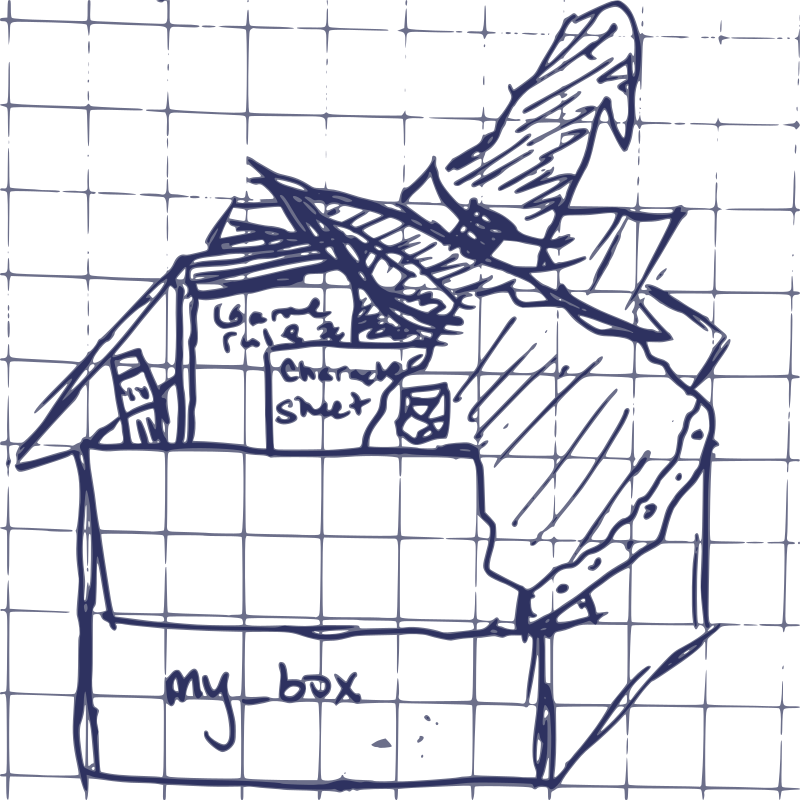
And here’s Alice’s list.
>>> my_box = ['d20', 'pencil', 'character sheet', 'game rule book', 'robe', 'wizard hat']Alice is looking at her box, rather pleased with her packing job at this point, when her friend Barb comes over.

Barb wants to share the box with Alice, so they only have to carry one box around. Alice figures that’s cool, so she updates her Python code, too:
>>> our_box = my_box
>>> our_box
['d20', 'pencil', 'character sheet', 'game rule book', 'robe', 'wizard hat']Now, Alice and Barb can refer to our_box when they talk about the container for
their game stuff. Sweet!
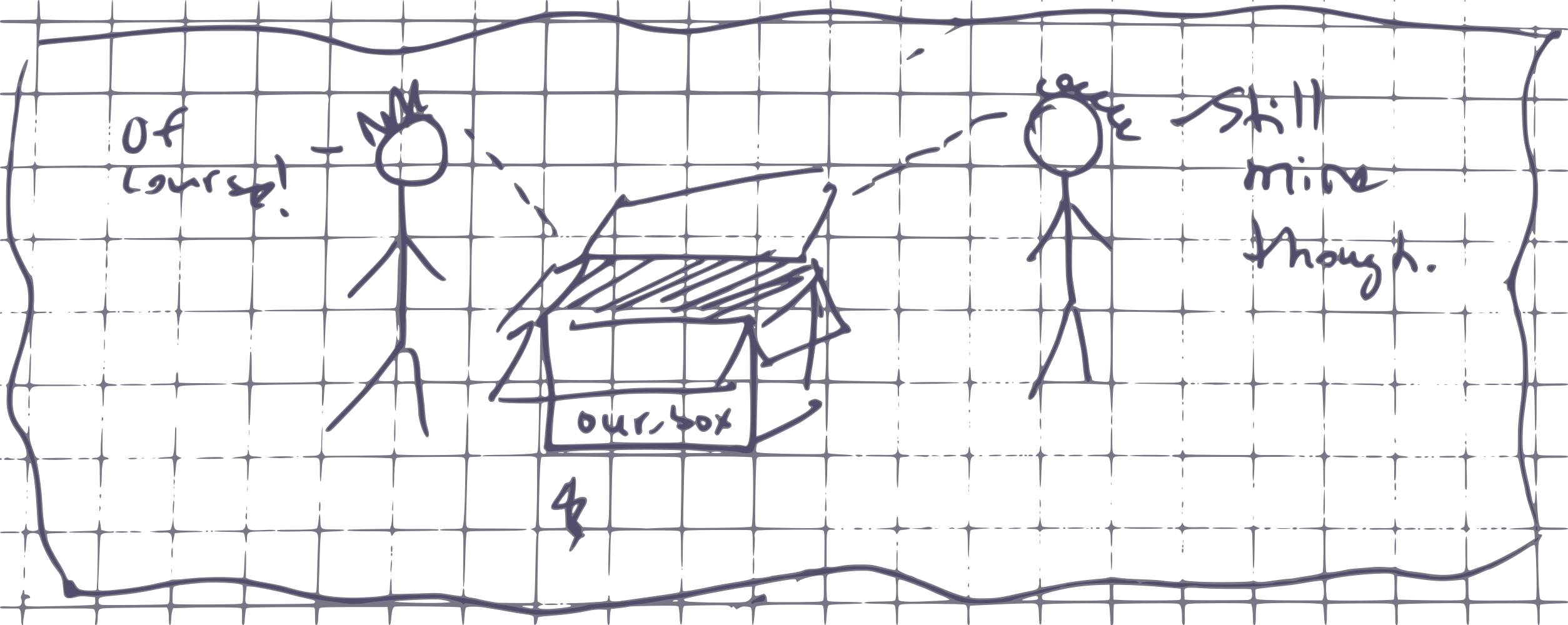
But just because there’s another label on the box, that doesn’t mean the old label went away. Just try asking the Python interpreter whether the two boxes are the same item in memory:
>>> my_box
['d20', 'pencil', 'character sheet', 'game rule book', 'robe', 'wizard hat']
>>> our_box is my_box
TruePython says our_box and my_box are literally the same item.
Now, Barb wants to spice up the campaign by adding Pokemon to the mix.
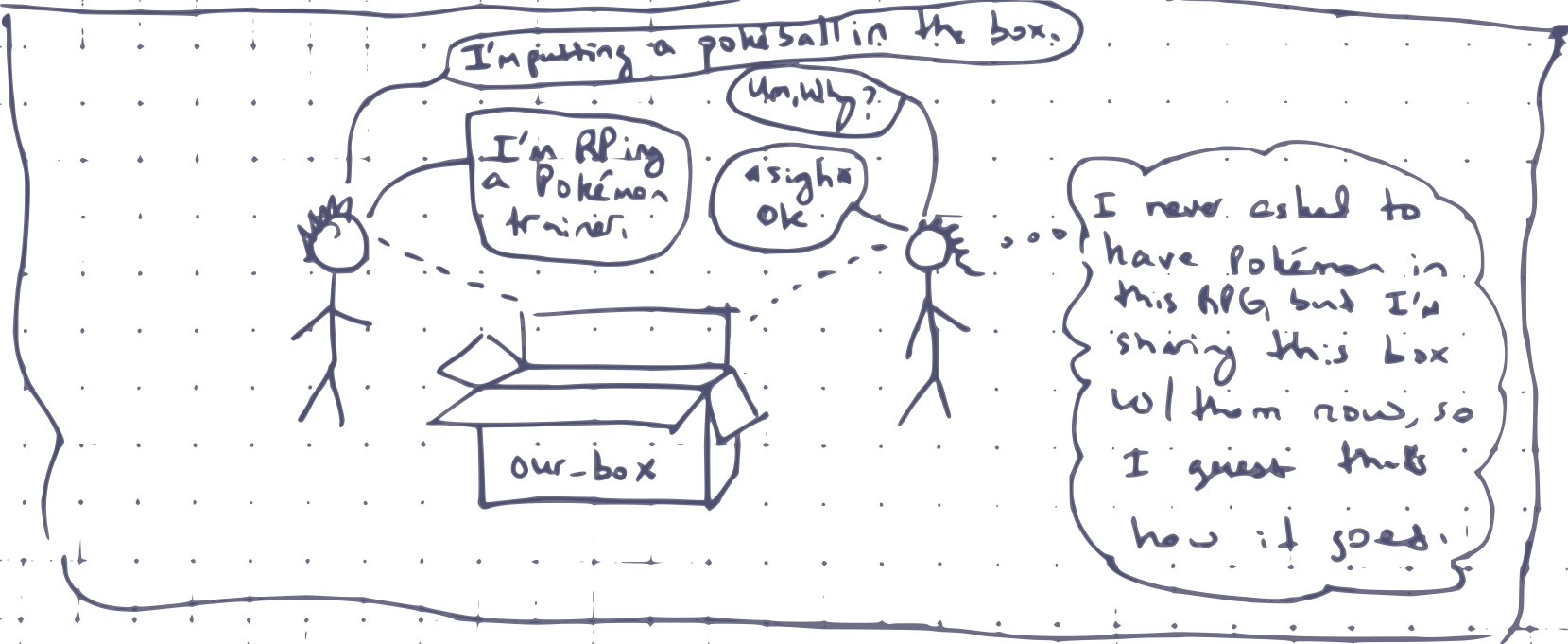
Alice isn’t sure how well that will go over, but she’s willing to go along with this idea. She appends the new item to her Python list, too.
>>> our_box.append('pokeball')Now, this item should be in the box…
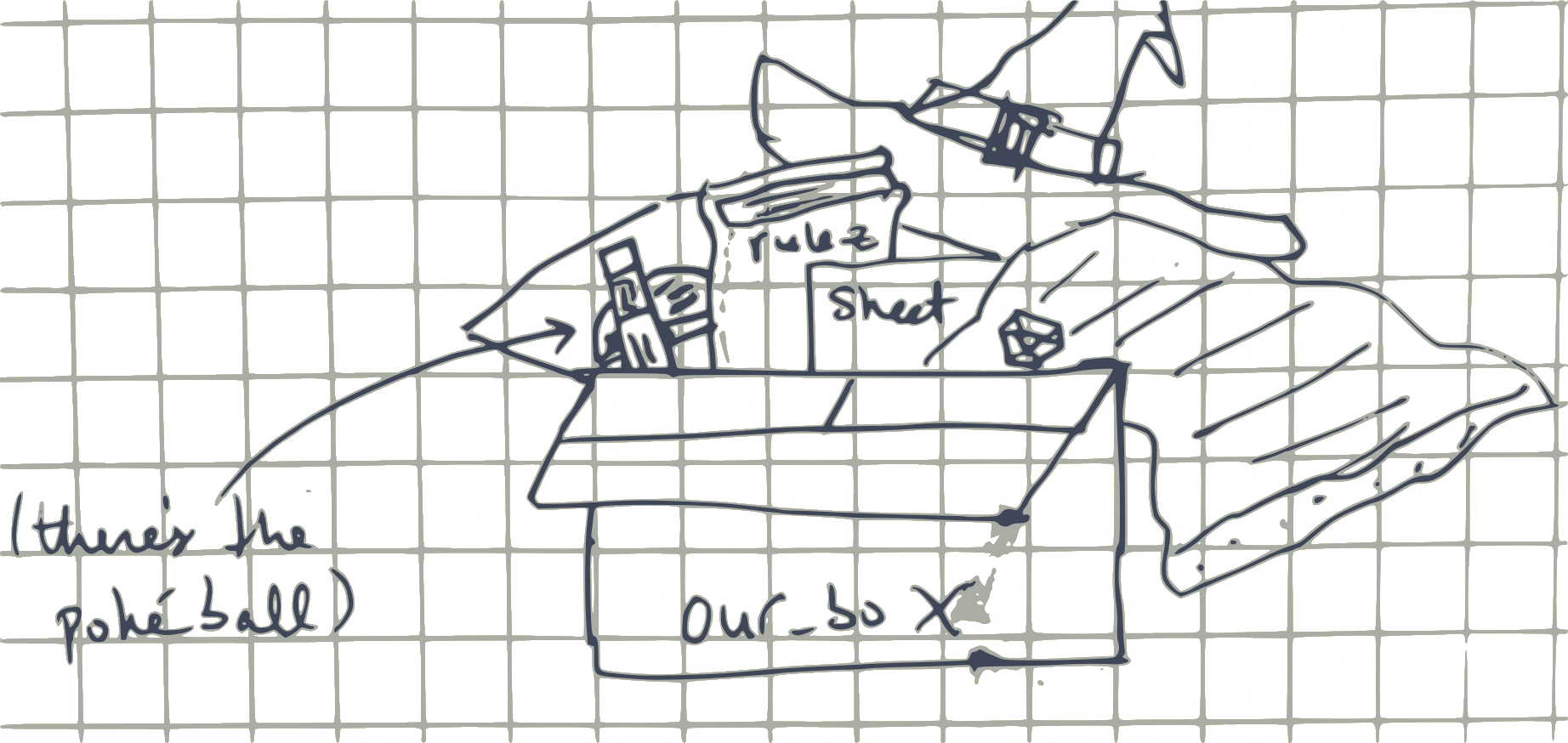
…and Alice’s list.
>>> our_box
['d20', 'pencil', 'character sheet', 'game rule book', 'robe', 'wizard hat', 'pokeball']There it is! The shared box has Barb’s Pokemon stuff, and our heroes are ready to go fight some dragons. Or capture Dragonairs. Maybe both.
But remember, our_box and my_box are still looking at the same place in memory, just
like Alice and Barb are looking at the same box. The original binding never went away,
meaning this picture is also correct:
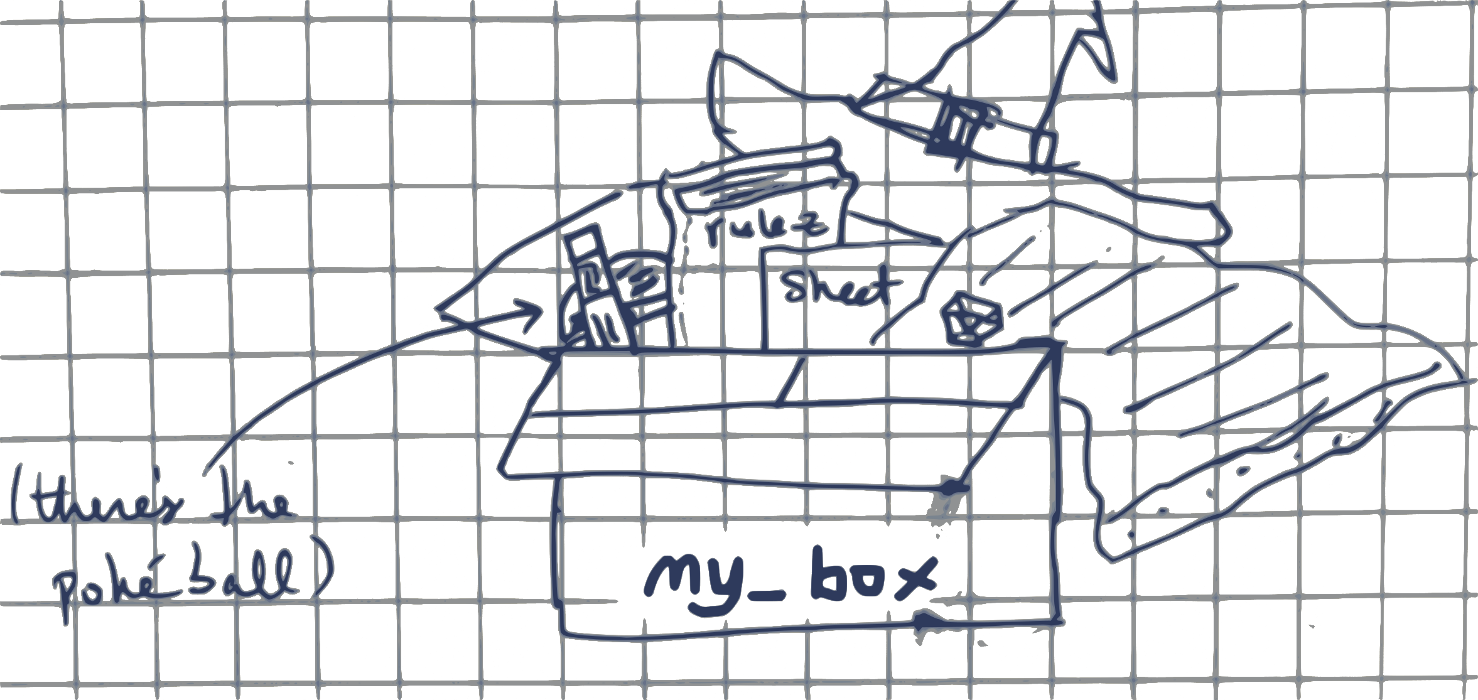
After all, our_box is still Alice’s box. You can confirm this in the interpreter
as follows:
>>> my_box
['d20', 'pencil', 'character sheet', 'game rule book', 'robe', 'wizard hat', 'pokeball']
>>> our_box is my_box
TrueAnd that’s how Alice and Barb ended up playing a high-fantasy/Pokemon cross-over pen-and-paper RPG campaign. Sharing memory, like sharing fun memories, is caring!
(Yes, I hate myself a little for that last line.)